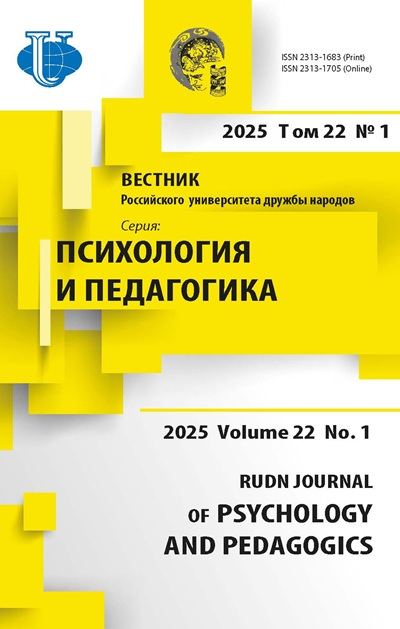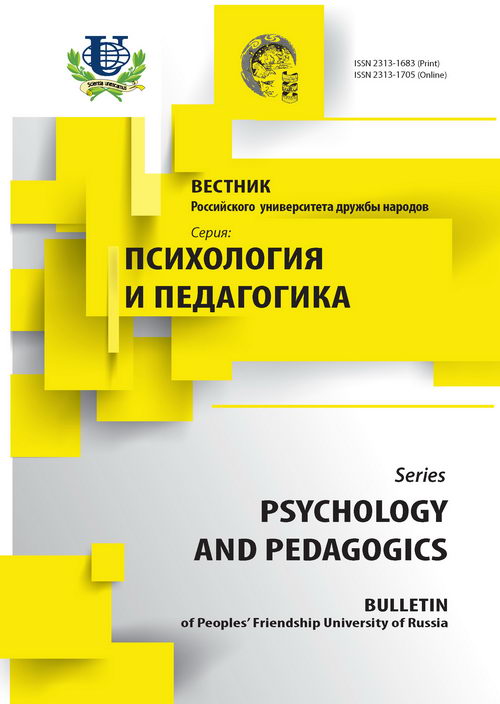ПРОЦЕСС ПОИСКА ПРИ СВОБОДНОМ ВОСПРОИЗВЕДЕНИИ СОЗДАЕТ ОШИБКИ В КРАТКОВРЕМЕННОЙ, НО НЕ В ДОЛГОВРЕМЕННОЙ ПАМЯТИ
- Авторы: Тарноу Ю.1
-
Учреждения:
- Авалон Бизнес Систем
- Выпуск: № 2 (2015)
- Страницы: 54-66
- Раздел: Статьи
- URL: https://journals.rudn.ru/psychology-pedagogics/article/view/13438
- ID: 13438
Цитировать
Полный текст
Аннотация
Анализ ошибок свободного воспроизведения показывает, что процесс поиска в кратковременной памяти сопровождается непрерывным линейным ростом количества ошибок, что ставит под сомнение модели кратковременной памяти, предполагающие последовательное «опустошение» (очищение) ее ячеек. Частота ошибок возрастает по экспоненте примерно на 1% в секунду при условии, что воспроизводимые единицы тесно связаны между собой. Это приводит к ситуации«принципа неопределенности Гейзенберга»: чем больше единиц воспроизводится, тем меньше точность их воспроизведения. Так как вероятность ошибки не достигает плато и не зависит от времени, прошедшего до начала воспроизведения, предполагается, что сам процесс поиска продуцирует ошибки в кратковременной памяти. В отличие от этого в долговременной памяти вероятность ошибок остается постоянной, что свидетельствует об одном хранилище и отсутствии ошибок, индуцированных поиском. Распределение ошибок при воспроизведении из кратковременной памяти аналогично распределению правильных ответов.
Ключевые слова
Список литературы
- Andrews-Hanna J.R. The brain’s default network and its adaptive role in internal mentation // The Neuroscientist. - 2012. - 18(3). - P. 251-270.
- Balakrishnanl J.D., Ashby F.G. Subitizing: Magical numbers or mere superstition? // Psych. Research. - 1992. - 54(2). - P. 80-90.
- Cowey A., Stoerig P. The neurobiology of blindsight // Trends in neurosciences. - 14(4). - P. 140-145.
- Deese J. On the prediction of occurrence of particular verbal intrusions in immediate recall // J. Exp. Psych. - 1959. 58(1). - P. 17.
- Freud S. The Interpretation of Dreams. Standard Edition (IV & V), 1900.
- Freud S. Psychopathology of Everyday Life. MacMillan, 1915.
- Harbison J., Dougherty M.R., Davelaar E.J., Fayyad B. On the lawfulness of the decision to terminate memory search // Cognition. - 2009. - 111(3). - P. 397-402.
- Howard M.W., Kahana M.J. Contextual variability and serial position effects in free recall // J. Exp. Psych: Learning, Memory, and Cognition. - 25(4). - P. 923.
- Jonides J., Lewis R.L., Nee D.E., Lustig C.A., Berman M.G., Moore K.S. The mind and brain of short-term memory // Annu. Rev. Psychol. - 2008. - 59. - P. 193-224.
- Kahana M.J., Howard M.W., Zaromb F., Wingfield A. Age dissociates recency and lag recency effects in free recall // J. Exp. Psych: Learning, Memory, and Cognition. - 2002. - 28(3). - P. 530.
- McDermott K.B. The persistence of false memories in list recall // J. Memory & Language. - 1996. - 35. - P. 212-230.
- McElree B. Accessing recent events // Psychology of learning and motivation. - 2006. - 46. - P. 155-200.
- Miller J.F., Weidemann C.T., Kahana M.J. Recall termination in free recall // Memory & cognition. - 2012. - 40(4). - P. 540-550.
- Murdock Jr. B.B. The serial position effect of free recall // J. Exp Psych. - 1962. - 64(5). - P. 482.
- Murdock B.B., Okada R. Interresponse times in single-trial free recall // J. Exp Psych. - 1970. - 86(2). - P. 263.
- Murdock B.B. Human memory: Theory and data. - Lawrence Erlbaum, 1974.
- Murdock B.B. Developing TODAM: Three models for serial-order information // Memory & Cognition. - 1995. - 23(5). - P. 631-645.
- Roediger H.L., McDermott K.B. Creating false memories: Remembering words not presented in lists // J. Exp. Psych: Learning, Memory, and Cognition. - 1995. - 21(4). - P. 803.
- Tarnow E. How dreams and memory may be related // Neuropsychoanalysis. - 2003. - 5(2). - P. 177-182.
- Tarnow E. Response probability and response time: a straight line, the Tagging/Retagging interpretation of short term memory, an operational definition of meaningfulness and short term memory time decay and search time // Cognitive neurodynamics. - 2008. - 2(4). - P. 347-353.
- Tarnow E. Short term memory may be the depletion of the readily releasable pool of presynaptic neurotransmitter vesicles of a metastable long term memory trace pattern // Cognitive neurodynamics. - 2009. - 3(3). - P. 263-269.
- Tarnow E. There is no capacity limited buffer in the Murdock (1962) free recall data // Cognitive neurodynamics. - 2010. - 4(4). - P. 395-397.
- Unsworth N. Exploring the retrieval dynamics of delayed and final free recall: Further evidence for temporal-contextual search // J. of Memory and Language. - 2008. - 59(2). - P. 223-236.
- Unsworth N., Brewer G.A., Spillers G.J. Understanding the dynamics of correct and error responses in free recall: Evidence from externalized free recall // Memory & cognition. - 2010. - 38(4). - P. 419-430.
- Wixted J.T., Rohrer D. Proactive interference and the dynamics of free recall // J. Exp. Psych: Learning, Memory, and Cognition. - 1993. - 19(5). - P. 1024.
- Zaromb F.M., Howard M. W., Dolan E.D., Sirotin Y.B., Tully M., Wingfield A., Kahana M.J. Temporal associations and prior-list intrusions in free recall // J. Exp. Psych: Learning, Memory, and Cognition. - 2006. - 32(4). - P. 792.
Дополнительные файлы















